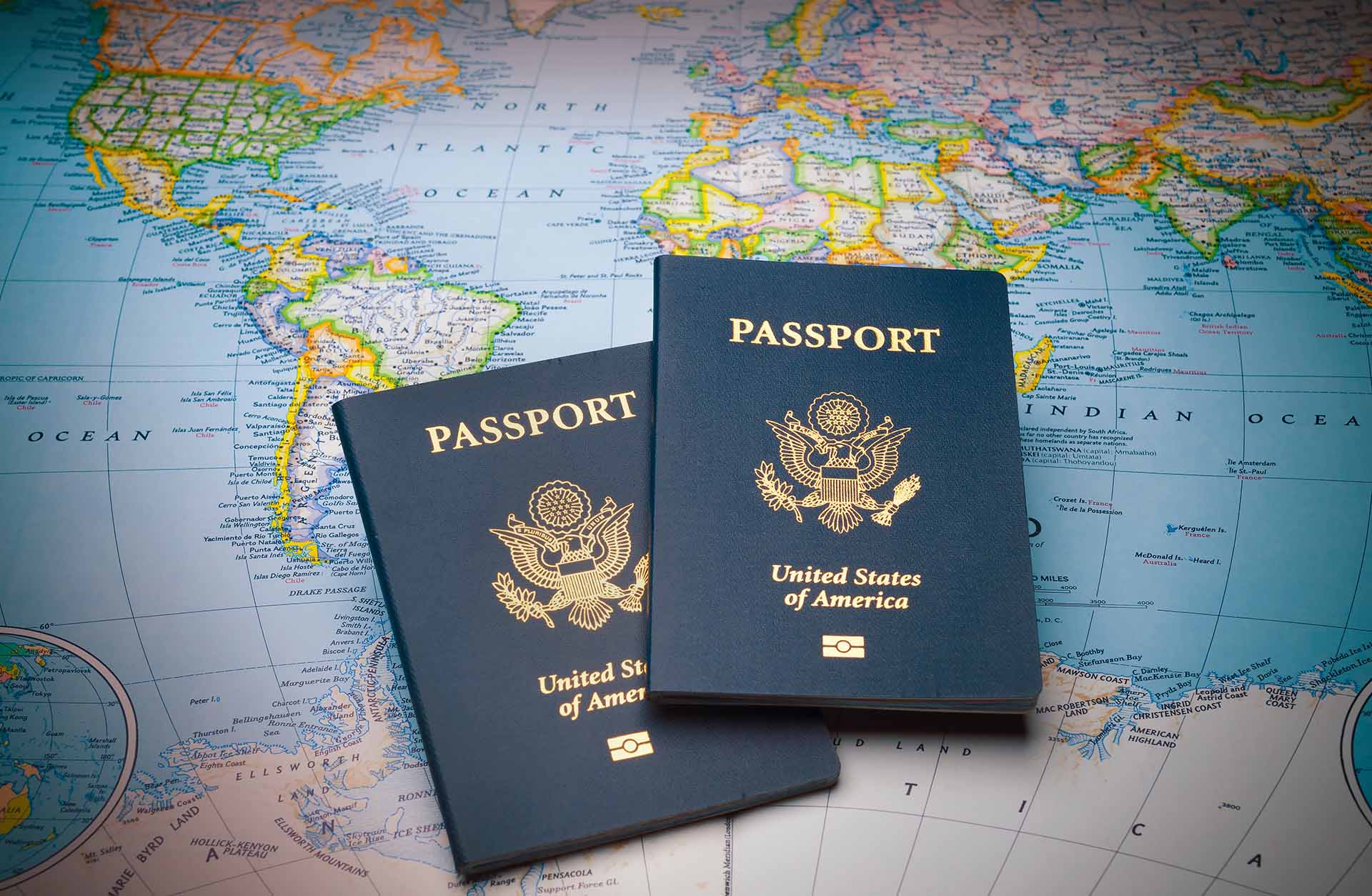If you’re a person of adventurous spirit, then you’re probably attracted to exotic places, friendly and unique people, and unique food flavors. Experiencing new things can be much more mind-blowing if you are relocating to the other part of the world. If East Asia is what you set your sights on, moving to Taiwan may be a dream come true.

This mind-boggling island is appealing for expats for many reasons – it is unique due to its peculiar history and rapid development in recent times. Dubbed Formosa, it is influenced by Japan, Korea, and Mainland China, from which it’s just 112 miles away. So, before you start packing your belongings and break the news to everyone that you’re leaving for a fairytale-like country, you should become familiar with some key questions about the life you are going to live.
Get Your Facts Straight Before Moving to Taiwan as an Expat
Officially the Republic of China, once known as Formosa, the legal status of this autonomous state has been disputed by Mainland China since the end of the Chinese Revolution and the creation of the People’s Republic of China (PRC) in 1949. It was a member of the United Nations until 1971, when it was replaced by the PRC. Official Beijing still refuses to recognize Taiwan’s sovereignty and threatens to break diplomatic relations with any nation that does.
Despite its disputed legal status, the island state emerged as a highly developed country after WWII and became one of the four original “Asian Tigers” under the patronage and protection of the United States. Its export-oriented economy is the 21st largest in the world, with special contributions from the high-tech, steel and machinery manufacturing sectors.
When it comes to geography, the state is nestled in the middle of the ocean. More precisely, it borders the Pacific Ocean to the East, the East China Sea to the north, and the South China Sea to the southeast. Its capital is Taipei, and the largest city is New Taipei. One of the most pressing concerns for expats is usually the language barrier since the nation has several national languages, such as:
- Mandarin
- Formosan languages
- Taiwanese Hokkien
- Hakka

Get to Know Taiwanese Culture and History
Coming from the West to the Far East could bring you lots of excitement as well as certain challenges. Facing a completely different lifestyle, habits, and social norms might cause a bit of a cultural shock. To mitigate any possible stress, you should do some research about Taiwan’s people and their mindset and find out what is considered socially acceptable behavior there. Why not start with some of these facts:
- Residents don’t like rain and avoid it whenever possible
- Most locals love to work all the time
- There are no garbage cans outdoors, and they are tossed into a garbage truck when it arrives
- Elderly people are highly respected and honored
- Most residents are Buddhist or Taoist

If You Want to Travel With a Relaxed Mind, Be Organized and Get Familiar With the Legal Requirements
When relocating to this fantastic Asian island, you should ensure the smoothest possible travel. That means you need to know what essential documents needed to travel abroad and living overseas permanently are. As an expat moving to Taiwan for work, study, or simply a better life, you’ll need to obtain either a resident visa or a visitor visa. The former will allow you to stay in the country for a more extended period.
It is possible to enter the state on a visitor visa and then ask for a resident one, but if you want to play it safe, apply for the latter at your nearest Taiwanese representative office even before you leave the US. In any case, these are the documents you’ll have to obtain:
- Passport
- Visa
- Forex card
- Work permit (if you have one)
- Birth certificate
- Medical records
- School records
- Social security cards
- Marriage certificates
Once you arrive and settle in, you’ll have 15 days to obtain the so-called Alien Resident Certificate (ARC) at the nearest Service Center of the National Immigration Agency (NIA). It will serve as your main form of identification during your entire stay abroad.

Job Matters – Take off Your Rose-Colored Glasses and Be Objective
It is possible to get a well-paid job here, but the process requires time. If your main goal is to relocate to Taiwan because of employment, then this issue should be taken care of before you apply for a resident visa.
According to the law of the Republic of China (ROC), no foreigner can start a job without a work permit. One more thing you should understand before hiring an international moving company are employment limitations for expats. Here are the positions open to foreigners that you can take into consideration:
- Specialties or technicians
- Executives of enterprises established by foreign investors
- School teachers and language teachers
- Artists, entertainers, athletes, and coaches
- Contracting foreigners
If you’re an expat looking for a job, it’s recommended to contact the Ministry of Labor and find out all the employment details before your relocation. You might not need your own vehicle or a thick jacket to live on the island, but your monthly income should be constant and sufficient.

What Are the Best Cities for Living
Depending on your goals, you’ll probably have a basic plan considering accommodation and job options, your savings, and general foreknowledge about Taiwanese cities and their residents. However, if you haven’t made your final decision about where to relocate, we’ve compiled a list of some of the most popular places for expats with high living standards.
Taipei, as the capital city, is, for sure, the most famous place on the island. That being said, Taipei 101 skyscraper is often the first thing that pops into foreigners’ minds. But, Taiwan is full of great places with fantastic nature, restaurants, and a lively lifestyle. So, it’s up to you to find a suitable home for you and your family.
Taipei – the Capital
Due to its status as a metropolis and home to around 30% of the total population, this place on the northern tip of the island is where most of the action is. If you’re more inclined toward buzzing areas, with skyscrapers, night markets, and abundant nightlife, then you should consider this city with its own personality and charm.
In addition to the largest airport in the country, delicious food and the famous bubble tea, this is the place that offers a glimpse into Taiwan’s culture and history. Districts of Wanhua and Datong boast some breathtaking temples, and in the National Palace Museum, you can see ancient Chinese artifacts and artworks.
If you decide to start from scratch in the capital, congested streets are something you should be prepared for. But, don’t worry, the city has an extensive network of public transport consisted of:
- Taipei Metro (MRT)
- Bus lines
- Railway
- High-speed rail connections
Taichung – the Smart City
Considered a forerunner in smart-city technology, Taichung is often deemed as Taiwan’s most livable city. It doesn’t have the dynamic vibe of the capital, so many residents, nor a subway system as developed as Taipei’s, so one could ask – what’s the catch? Actually, this place is crammed with attractions and amenities that can improve the quality of your life. We’ll mention just a few:
- Taiwan’s best restaurant – Le Mout
- Arts and culture – The National Museum of Fine Arts and Rainbow Village
- Night markets – Feng Chia
- The mild weather almost all year round
- Plenty of shops
- An abundance of hiking trails
Kaohsiung – Trading Hub
Often referred to as Taiwan’s Harbor Capital, it is the third-largest place located in the south of the country. Thanks to its proximity to the ocean and its reputation as one of the world’s largest cargo-container seaports, Kaohsiung stands out as an important trading hub in the region.
Besides plenty of skyscrapers and night markets, its landmark is the Love River, that offers great strolling paths along its banks and easy-going cafes where you can enjoy the amazing view while sipping your drink. Have in mind that you should learn at least some Mandarin or Taiwanese since English is not so widely spoken.
Hsinchu – the Windy City
Do you prefer places with a small-town feel? If so, Hsinchu, with a population of approximately 440,000, could be your best bet. Dubbed “The Windy City” because of its windy climate, it is the oldest city in northern Formosa. Also, it holds many gems and attractions, including:
- City God Temple
- Leofoo Village Theme Park
- East Gate
- 18 Peaks Mountain Park
- Nanliao Fishing Port
- Glass Museum
- Hsinchu Zoo
- Green Grass Lake
Thanks to Hsinchu Science Park, the oldest of its kind here, and plenty of well-paid employment opportunities, many expats and locals believe this is one of Taiwan’s most desirable regions.
Cost of Living Is Quite Reasonable
Compared to Japan or Hong Kong, the island will provide you with great amenities and natural beauties at a reasonable monthly cost.
Here’s the summary of the estimated monthly costs, according to Expatistan, an online cost of living calculator:
- Family of four: around $4,000
- Single person: around $2,000
- Monthly rent: $930 – $1,486
- Utilities: about $137
- 1 gallon of gas: around $4
- Ticket for public transport: approximately $50

Meet the Intriguing Taiwanese Cuisine
Eating out is one of the best ways to experience the local culture. So, after you’ve settled in and feel starved, it is time to explore one of the most delicious Asian cuisines.
Don’t worry if your knowledge about Taiwanese dishes is modest at best. Here are some of the staple dishes you should try out:
- Beef noodles
- Soup dumplings
- Minced pork rice
- Intestine and oyster vermicelli
- Oyster omelet
- Stinky tofu
- Chicken cutlet
- Bubble tea (pearl milk tea)
- Shaved ice
- Pineapple cake
Some of the Best Restaurants in Taiwan You Can’t Afford to Miss
If your first impression about Formosa is that it represents an elegant mix of the old and new, the exact same situation is when it comes to food and foodie hotspots. Mainland Chinese and Japanese cuisines have had a great impact on Taiwanese international menus. Once you enter any of these dinings spots, you’ll be thrilled with fabulous flavors, and you’ll want to scratch below the surface. Luckily, Taiwan brims with top-notch eateries, including those with Michelin Stars.
Depending on your palate preferences, you can opt between French, Japanese, European, Indian dishes, and here’s a list of some of the most visited restaurants:
- RyuGin – Japanese, Asian and Taiwanese food
- Tianjing Chong Zhua Pancake – food street specialties
- Mayur Indian Kitchen
- Ikki – Japanese cuisine
- Le Palais – a mix of Chinese, French and European cuisines
- Da Wan BBQ

Must-See Places in Taiwan
It’s relatively unknown that Formosa has the highest density of high-altitude mountains in the world, and living in Taiwan could be an excellent chance to engage in various outdoor activities, even in vast cities such as Taipei. After your international relocation, start your adventure and leave no stone unturned to discover amazing places and boost your energy. Get a glimpse into some spots that should find your way on your must-visit list:
- Central Mountain Range
- Shulyang’s lake
- Taroko Gorge
- Beitou hot springs
- Shifen waterfall
- Sun Moon Lake
Why Relocating to Taiwan Could Be the Best Decision of Your Life
If you’re moving to Taiwan, rest assured that you’ll have unforgettable moments, from the arrival until you realize that this island has gotten under your skin. Thanks to its friendly people, warm weather almost all year round, mouth-watering food, and unbelievable nature, you’ll very soon realize that you feel at home.
One of the obstacles could be the language or unusual food, but if you start with classes several months before, breaking the language barrier is achievable, and some basic knowledge would be enough for a start. Formosa’s excellent cuisine shouldn’t be a big deal – it’s so tasty that you’ll have a problem trying to stop eating all those spicey bites.









